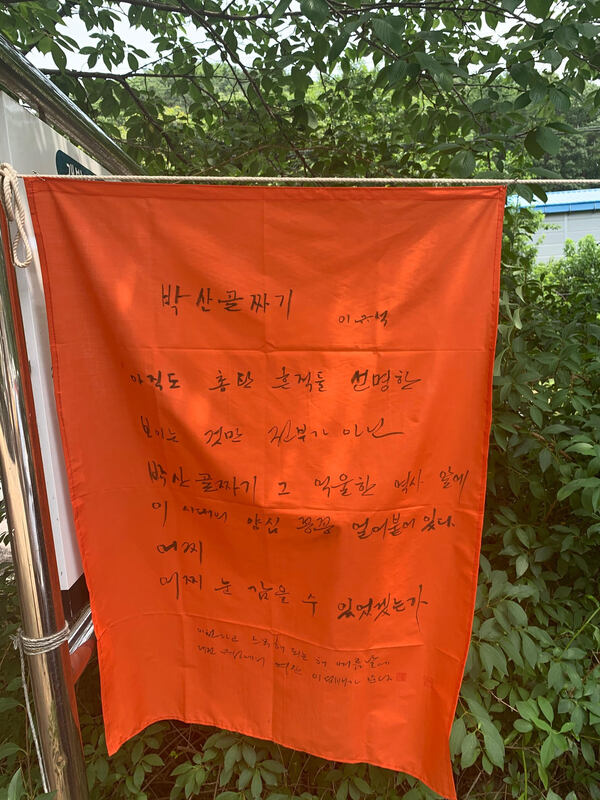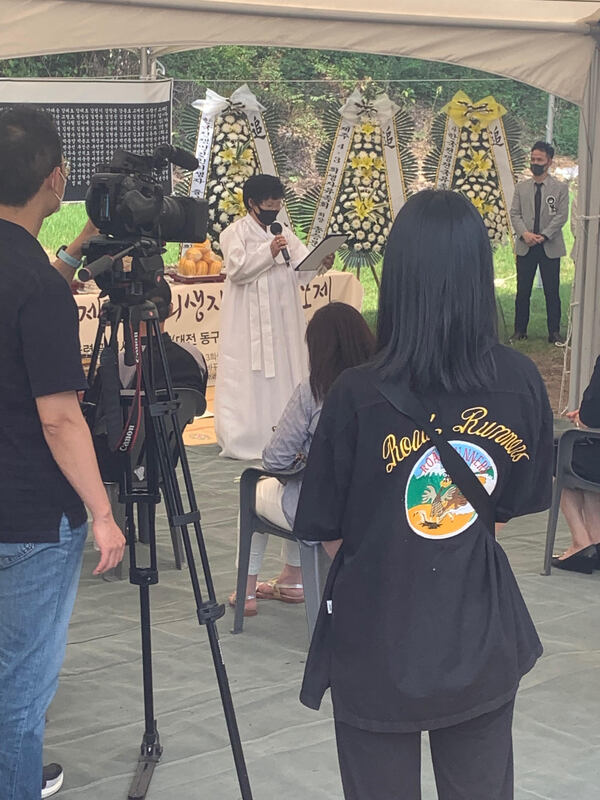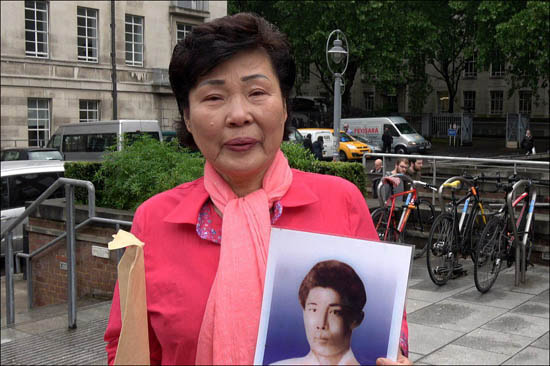|
One thing that has always struck me about this valley in Daejeon is the way the story always finds itself either expressed in, or involved with, poetry in both its private and public manifestations. As someone who has spent the last twenty years thinking of poetry as one way to foster an engagement -or different attention - to the world surrounding us I find this encouraging. It is something that I recognize perhaps, among so many experiences that I can only fail to come to terms with otherwise.
There is much to be written - and there will be shortly on this site - about the poet Jeon Sukja for whom poetry is a form of catharsis, or an extremely private and confessional way of dealing with what happened to her Father. Her story reveals one of these "untranslatable" experiences, and to see it written down and performed (always saturated with the pain of these memories) provides us with a unique and moving record of what continued to happen at this place long after fighting in the Korean War came to an end. But there are also many public expressions of poetry here initiated by the Daejeon Writers Group who I was extremely privileged to accompany to a conference on the Jeju 4.3 incident a couple of years ago. At this time of year the whole valley is usually covered in poetry banners in different colours, expressing what this history means to these writers and how it connects to other more recent historical events in South Korea. At Saturday's memorial I met the poet Park Soyoung for the second time who gave me a reading of her poem. I took my picture with her and talked about future collaborations with poets in the UK because of the Winnington connection. I hope that something meaningful can be arranged in the future. Your comment will be posted after it is approved.
Leave a Reply. |
Categories
All
Archives
April 2023
|



 RSS Feed
RSS Feed
